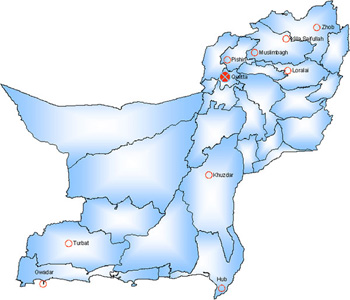INDIAN ARMED FORCES CHIEFS ON OUR RELENTLESS AND FOCUSED PUBLISHING EFFORTS

The insightful articles, inspiring narrations and analytical perspectives presented by the Editorial Team, establish an alluring connect with the reader. My compliments and best wishes to SP Guide Publications.

"Over the past 60 years, the growth of SP Guide Publications has mirrored the rising stature of Indian Navy. Its well-researched and informative magazines on Defence and Aerospace sector have served to shape an educated opinion of our military personnel, policy makers and the public alike. I wish SP's Publication team continued success, fair winds and following seas in all future endeavour!"

Since, its inception in 1964, SP Guide Publications has consistently demonstrated commitment to high-quality journalism in the aerospace and defence sectors, earning a well-deserved reputation as Asia's largest media house in this domain. I wish SP Guide Publications continued success in its pursuit of excellence.
- Operation Sindoor: Resolute yet Restrained
- India’s Operation Sindoor Sends a Clear Message to Terror and the World – ‘ZERO TOLERANCE’
- Japan and India set forth a defence cooperation consultancy framework, talks on tank and jet engines
- Terrorist Attack in Pahalgam in Kashmir: Unfolding a long surgical war against PAK
- Lt General Pratik Sharma takes over Command of Indian Army's Northern Command
Pak Military Goes After Baloch Riches
 |
The Author is Former Director General of Information Systems and A Special Forces Veteran, Indian Army |

Concurrent to the genocide in Baluchistan, ignored by the world including India, the Pakistani military is going after the riches of the Baluchistan Province. It is a well thought out strategy with Chinese backing, aim being to get hold of the economic jugular while continuing to muscle through the restive region. Saudi Arabia's $10 billion investments in an oil refinery in Gwadar will help subjugate the region further. Little understood in India is that Pakistan's strategic importance to the US has risen even more with President Donald Trump's aim to open a front against Iran, in which Saudi Arabia too is an active partner. So there is no need to get overjoyed with John R. Bolton US NSA saying Pakistan has assured US to deal 'firmly' with all terrorists. Ayesha Siddiqa, Pakistani military scientist in her book 'Military Inc' published in 2007 had written that the Pakistani military-private-corporate business empire then (2007) was estimated at $20 billon. In 2016, the Pakistani Senate was informed that the army's commercial wings, namely the Fauji (Army) Foundation, the Shaheen Foundation, the Bahria Foundation, the Army Welfare Trust and the Defense Housing Authorities, owned around 50 business concerns and housing properties worth over $20 billion. The Senate obviously was given highly conservative figures because if the net worth was $20 billion in 2007, then it probably more than doubled nine years later; in 2016.
The current worth is estimated at over $100 billion by Ayesha Siddiqa, amplifying that the army is deliberately underestimating their investment and disguising their involvement through public sector organisations like the National Logistics Cell, Special Communications Organisation and Frontier Works Organisation, which are exempt from annual audit and scrutiny. But Pakistani military-private-corporate empire is set for a quantum jump. The military has already entered the oil business and is set for copper and gold mining in Baluchistan, in which at least technical help will definitely come from China. China is the only country in the world drilling commercial oil and mining copper in Afghanistan since 2012, which is not surprising since China supports the Taliban individually as well as in conjunction with Pakistan.
The Frontier Oil Company, subsidiary of Pakistan's army-managed Frontier Works Organisation has already been granted a $370 million contract for laying a 470 km oil pipeline; with the Economic Coordination Committee dishonouring the previous governments decision that the project be undertaken by government's Inter-State Gas System (ISGS). Significantly, the previous government had awarded the same project to ISGS at the cost of $280 million. The added $90 million will obviously be pocketed by the army. The military is now poised to take decisions with regard to development of one of the world's biggest untapped copper and gold deposits in Baluchistan. More importantly, the Frontier Works Organisation (FWO), is positioning itself to be a member of any consortium involved.
According to a senior Baluchistan government official, the Reko Diq mine has been taken over by the army. Reko Diq, located near Reko Diq town in Chagai District, Baluchistan represents one of the largest copper reserve in Pakistan and in the world having estimated reserves of 5.9 billion tonnes of ore grading 0.41% copper. The mine also has gold reserves amounting to 41.5 million oz – fifth largest gold reserves in the world. China's state-owned miner China Metallurgical Group Corporation (MCC), which operates the Saindak copper and gold mine close to Reko Diq, has been eyeing the bigger deposit for more than a decade. Access to the Chagai district is via the Zahidan - Quetta highway also known as the London Road. Ayesha Siddiqa says, "The military has taken a front seat. They've understood that the economy is important for having a strong military. Control of the economy also gives the military a handle over expanding their business interests. It can be easily surmised from all this that the hold of the military over Pakistan will increase exponentially, becoming a stake in the country's economy, in addition to rapidly multiplying its own wealth. Backed by China, Saudi Arabia and US, it is unlikely to retreat to barracks, making way for democracy. Pakistan's policy against India is not likely to change. On the contrary it will likely harden with US exiting Afghanistan.





